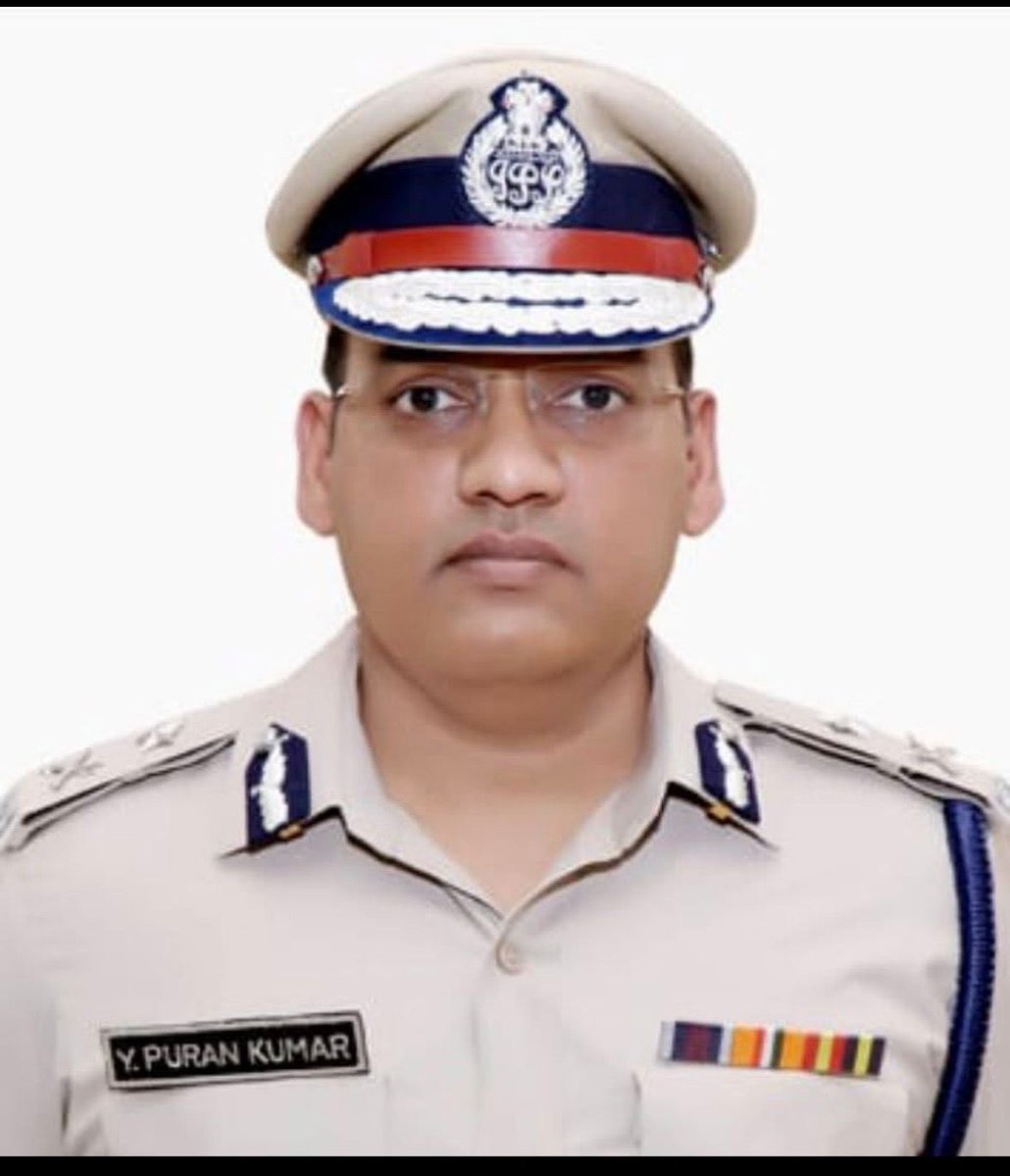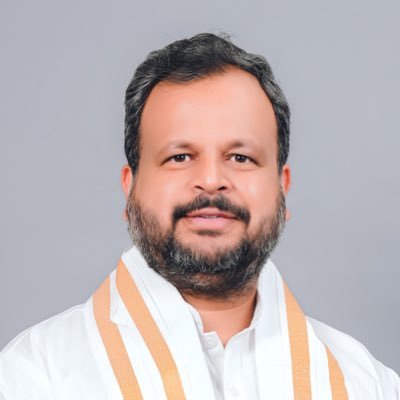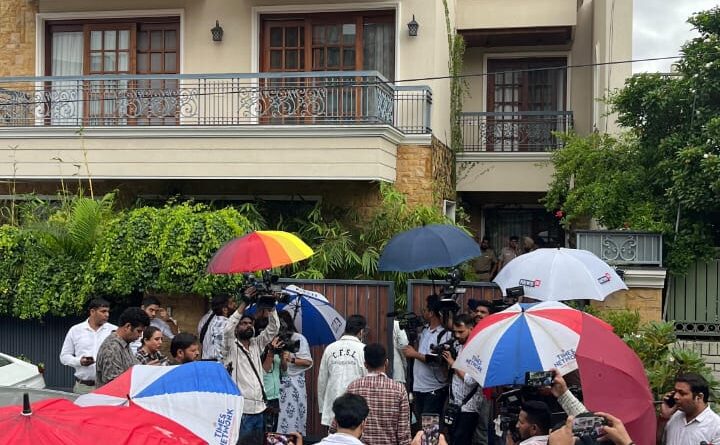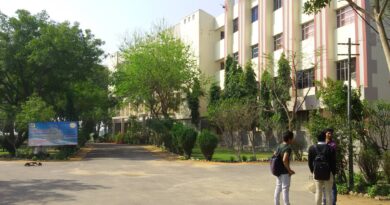Haryana IPS Suicide Probe Stalls: Post-Mortem Delayed as Grieving Widow Vows Action Against ‘Tormentors’; MP Demands Judicial Scrutiny Amid Caste Bias Outrage
Ambala MP Varun Chaudhry Slams Caste ‘Tormentors’ in IPS Suicide, Demands Judicial Probe to Expose Haryana’s Elite
Haryana IPS Suicide Probe Stalls: Post-Mortem Delayed as Grieving Widow Vows Action Against ‘Tormentors’; MP Demands Judicial Scrutiny Amid Caste Bias Outrage
MP Varun Chaudhry Slams Caste ‘Tormentors’ in IPS Suicide, Demands Judicial Probe to Expose Haryana’s Elite
Chandigarh, October 8, 2025
In a poignant standoff that underscores the raw grief engulfing Haryana’s elite administrative circles, the post-mortem examination of senior IPS officer Y. Puran Kumar—whose shocking self-inflicted death has exposed alleged deep-seated caste discrimination and workplace harassment—remained pending Wednesday. His IAS wife, Amneet P. Kumar, refused consent for the procedure, insisting it await the return of their elder daughter from the United States. With the officer’s body preserved in the morgue of Chandigarh’s Government Medical College and Hospital in Sector 16, the delay has fueled speculation of an impending demand for a high-level federal probe, even as political voices amplify calls for transparency and accountability.
A Widow’s Resolve: Return from Japan, Tense Meetings, and a Firm Ultimatum
Amneet, a 1999-batch IAS officer and Commissioner and Secretary in Haryana’s Industries and Commerce Department, touched down in Chandigarh early Wednesday from an official Japan tour alongside Chief Minister Nayab Singh Saini. Diverting straight to her official Sector 24 residence, she was immediately surrounded by a phalanx of sympathizers: Chief Secretary Anurag Rastogi, along with a cadre of senior IAS and IPS colleagues, converged for an impromptu crisis huddle.
Sources close to the closed-door session described a visibly shattered Amneet, her composure cracking under the weight of loss.
As officers proffered defences—insisting ignorance of Puran’s festering disputes with superiors—one senior bureaucrat even quipped about his aversion to social media, claiming it shielded him from the brewing storm. The room fell silent when Amneet interjected with steely resolve: “Whoever is held responsible in the suicide note will face action—no exceptions.” Her words, echoing the nine-page missive recovered from their Sector 11 bungalow, have ignited whispers that the family may push for a Central Bureau of Investigation (CBI) inquiry before any funeral rites, viewing it as the only bulwark against institutional whitewashing.
Puran’s elder daughter, a US-based professional, is slated to arrive Thursday, potentially paving the way for the autopsy and subsequent last rites. Until then, the 52-year-old’s remains—fatally wounded by a gunshot from his personal security officer’s revolver in the couple’s basement on October 7—lie in cold storage, a stark symbol of a life cut short amid claims of systemic bias.
Echoes of a Tormented Career: From Valor to Victimhood
The tragedy traces back to midday Tuesday, when domestic staff discovered Puran, a 2001-batch IPS stalwart and recent appointee as Inspector General at Rohtak’s Sunaria Police Training College, in a pool of blood. The Andhra Pradesh native, married to Amneet for over two decades and father to two children, had penned a raw, handwritten suicide note and will decrying years of “mental harassment and job stress.” As an Scheduled Caste (SC) officer, he accused three top brass—including serving and retired Director Generals of Police—of orchestrating caste-fueled humiliations: delayed promotions for his 2001 batch while favoring others, a “demeaning” non-cadre posting as IGP Home Guards despite vacancies, and exclusion from probe panels lacking SC representation.

Puran’s 24-year odyssey in Haryana Police was a tapestry of bold interventions and bruising battles. As Rohtak’s IG, he spearheaded probes into departmental graft and misconduct, earning accolades for impartiality but enemies in high places. His dossier brims with controversies: a 2020 clash with then-DGP Manoj Yadav over a temple visit on holiday, escalating to complaints at the National Commission for Scheduled Castes (NCSC) and High Court; exposés on IPS officers hoarding dual government quarters; and 2024 missives to the Chief Minister questioning irregular promotions for batches from 1991 to 2005, alongside pleas for his own salary refixation. He even returned a seven-year-old Honda City sedan in protest over not receiving a befitting Innova, lambasting the vehicle allotment “discriminations.”
The suicide’s timing—hours after his aide, Head Constable Sushil Kumar, was arrested in a ₹2.5 lakh bribery demand in Rohtak—added layers of suspicion. The alleged demand was of June/July but the FIR was lodged on October 7. Though not directly implicated, the note’s allusions to “corruption webs” intertwining police and politicians have Haryana’s corridors abuzz. Puran’s prior five complaints against a senior IAS for “humiliation” paint a portrait of a man who railed against inequities, only to be ground down by them.
Political Firestorm: MP’s Plea for Justice, Broader Dalit Anguish
The ripples reached Parliament Wednesday as Ambala Lok Sabha MP Varun Chaudhary, a BJP lawmaker, broke ranks to demand a judicial commission led by a Punjab and Haryana High Court judge. In a heartfelt statement, Chaudhary mourned the “irreplaceable loss” of a “strict, impartial, and honest” guardian of law, hailing Puran’s tenure as Ambala SP for transformative policing. “Not just a father to his family, but a pillar to the state—his untimely end has plunged Haryana into collective sorrow,” he said.

Chaudhary’s salvo zeroed in on the suicide note’s explosive contents: names of “high-seated officials” allegedly culpable for Puran’s despair through targeted torment of SC officers. He urged its immediate public disclosure to preempt influence-peddling, insisting FIRs against the accused and safeguards for all recovered documents. “These tormentors, perched on pedestals of power, must face the law. A fair probe demands judicial oversight to unearth every angle and deliver stringent justice.”
His remarks wove Puran’s plight into a national tapestry of caste inequities, 79 years post-Independence. Citing parallels—from the infamous shoe hurled at a Chief Justice of India to this “institutional murder”—Chaudhary decried the persistence of “inferiority complexes” afflicting Dalits, even as they ascend to benches and badges. “Dr. B.R. Ambedkar enshrined equality in our Constitution to eradicate such divides, yet Dalits remain deprived. The dream of our framers—of a truly egalitarian India—lingers unfulfilled.”




